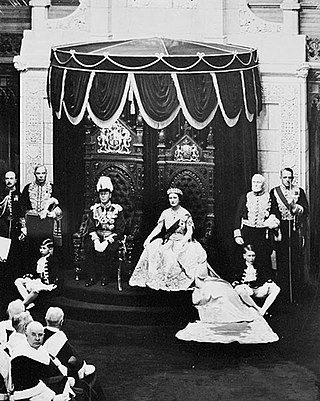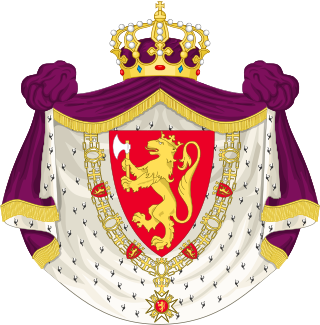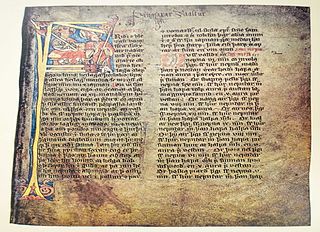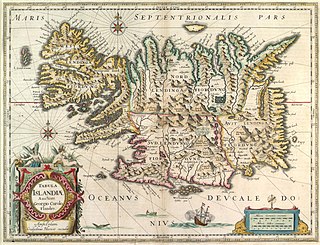Parliament as a legislature (1875–present)
| Parliament | Begin date (continuation) | Adjourn date (deferment) | Election | Head of state |
|---|---|---|---|---|
| 1st | 1 July 1875 | 26 August 1875 | — | Christian IX |
| 2nd | 2 July 1877 | 30 August 1877 | ||
| 3rd | 1 July 1879 | 27 August 1879 | ||
| 4th | 1 July 1881 | 27 August 1881 | ||
| 5th | 2 July 1883 | 27 August 1883 | ||
| 6th | 1 July 1885 | 27 August 1885 | ||
| 7th (special session) | 28 July 1886 | 26 August 1886 | ||
| 8th | 1 July 1887 | 26 August 1887 | ||
| 9th | 1 July 1889 | 26 August 1889 | ||
| 10th | 1 July 1891 | 26 August 1891 | ||
| 11th | 1 July 1893 | 26 August 1893 | ||
| 12th (special session) | 1 August 1894 | 28 August 1894 | ||
| 13th | 1 July 1895 | 24 August 1895 | ||
| 14th | 1 July 1897 | 26 August 1897 | ||
| 15th | 1 July 1899 | 26 August 1899 | ||
| 16th | 1 July 1901 | 26 August 1901 | ||
| 17th (special session) | 26 July 1902 | 25 August 1902 | ||
| 18th | 1 July 1903 | 26 August 1903 | ||
| 19th | 1 July 1905 | 29 August 1905 | ||
| 20th | 1 July 1907 | 14 September 1907 | Frederick VIII | |
| 21st | 15 February 1909 | 8 May 1909 | ||
| 22nd | 15 February 1911 | 10 May 1911 | ||
| 23rd (special session) | 15 July 1912 | 26 August 1912 | Christian X | |
| 24th | 1 July 1913 | 13 September 1913 | ||
| 25th (special session) | 1 July 1914 | 13 August 1914 | ||
| 26th | 7 July 1915 | 15 September 1915 | ||
| 27th (special session) | 11 December 1916 | 13 January 1917 | August 1916 October 1916 | |
| 28th | 2 July 1917 | 17 September 1917 | ||
| 29th (special session) | 10 April 1918 | 18 July 1918 | ||
| 30th (special session) | 2 September 1918 | 10 September 1918 | ||
| 31st | 1 July 1919 | 27 September 1919 | ||
| 32nd (special session) | 5 February 1920 | 1 March 1920 | 1919 | |
| 33rd | 15 February 1921 | 21 May 1921 | ||
| 34th | 15 February 1922 | 26 April 1922 | ||
| 35th | 15 February 1923 | 14 May 1923 | 1922 | |
| 36th | 15 February 1924 | 7 May 1924 | 1923 | |
| 37th | 7 February 1925 | 16 May 1925 | ||
| 38th | 6 February 1926 | 15 May 1926 | ||
| 39th | 9 February 1927 | 19 May 1927 | 1926 | |
| 40th | 19 January 1928 | 18 April 1928 | 1927 | |
| 41st | 15 February 1929 | 18 May 1929 | ||
| 42nd | 17 January 1930 26 June 1930 | 19 April 1930 28 June 1930 | 1930 | |
| 43rd | 14 February 1931 | (dissolution) 14 April 1931 | ||
| 44th (special session) | 15 July 1931 | 24 August 1931 | 1931 | |
| 45th | 15 February 1932 | 6 June 1932 | ||
| 46th | 15 February 1933 | 3 June 1933 | ||
| 47th (special session) | 2 November 1933 | 9 December 1933 | 1933 | |
| 48th | 1 October 1934 | 22 December 1934 | 1934 | |
| 49th | 15 February 1935 10 October 1935 | 4 April 1935 23 December 1935 | ||
| 50th | 15 February 1936 | 9 May 1936 | ||
| 51st | 15 February 1937 | (dissolution) 20 April 1937 | ||
| 52nd (special session) | 9 October 1937 | 22 December 1937 | 1937 | |
| 53rd | 15 February 1938 | 12 May 1938 | ||
| 54th | 15 February 1939 1 November 1939 | 26 April 1939 5 January 1940 | ||
| 55th | 15 February 1940 | 24 April 1940 | ||
| 56th | 15 February 1941 | 17 June 1941 | ||
| 57th (special session) | 9 July 1941 | 10 July 1941 | ||
| 58th (special session) | 13 October 1941 | 21 November 1941 | ||
| 59th | 16 February 1942 (no continuation) | 23 May 1942 (dissolution) 5 July 1942 | ||
| 60th (special session) | 4 August 1942 | 9 September 1942 | July 1942 | |
| 61st (special session) | 14 November 1942 | 14 April 1943 | October 1942 | |
| 62nd | 15 April 1943 1 September 1943 | 21 April 1943 17 December 1943 | ||
| 63rd | 10 January 1944 10 June 1944 2 September 1944 | 11 March 1944 20 June 1944 3 March 1945 | Sveinn Björnsson | |
| 64th | 1 October 1945 1 February 1946 | 21 December 1945 29 April 1946 | ||
| 65th (special session) | 22 July 1946 19 September 1946 | 25 July 1946 9 October 1946 | ||
| 66th | 10 October 1946 7 January 1947 | 22 December 1946 24 May 1947 | 1946 | |
| 67th | 1 October 1947 20 January 1948 | 20 December 1947 24 March 1948 | ||
| 68th | 11 October 1948 21 January 1949 | 20 December 1948 18 May 1949 | ||
| 69th | 14 November 1949 4 January 1950 | 20 December 1949 17 May 1950 | 1949 | |
| 70th | 10 October 1950 8 January 1951 | 19 December 1950 7 March 1951 | ||
| 71st | 1 October 1951 3 January 1952 | 20 December 1951 24 January 1952 | ||
| 72nd | 1 October 1952 12 January 1953 | 19 December 1952 6 February 1953 | Ásgeir Ásgeirsson | |
| 73rd | 1 October 1953 5 February 1954 | 18 December 1953 14 April 1954 | 1953 | |
| 74th | 9 October 1954 4 February 1955 | 18 December 1954 11 May 1955 | ||
| 75th | 8 October 1955 5 January 1956 | 17 December 1955 28 March 1956 | ||
| 76th | 10 October 1956 21 January 1957 | 22 December 1956 31 May 1957 | 1956 | |
| 77th | 10 October 1957 4 February 1958 | 20 December 1957 4 June 1958 | ||
| 78th | 10 October 1958 | 14 May 1959 | ||
| 79th (special session) | 21 July 1959 | 15 August 1959 | June 1959 | |
| 80th | 20 November 1959 28 January 1960 | 7 December 1959 3 June 1960 | October 1959 | |
| 81st | 10 October 1960 16 January 1961 | 20 December 1960 29 March 1961 | ||
| 82nd | 10 October 1961 1 February 1962 | 19 December 1961 18 April 1962 | ||
| 83rd | 10 October 1962 29 January 1963 | 20 December 1962 20 April 1963 | ||
| 84th | 10 October 1963 16 January 1964 | 21 December 1963 14 May 1964 | 1963 | |
| 85th | 10 October 1964 1 February 1965 | 22 December 1964 12 May 1965 | ||
| 86th | 8 October 1965 7 February 1966 | 17 December 1965 5 May 1966 | ||
| 87th | 10 October 1966 1 February 1967 | 17 December 1966 19 April 1967 | ||
| 88th | 10 October 1967 16 January 1968 | 20 December 1967 20 April 1968 | 1967 | |
| 89th | 10 October 1968 7 February 1969 | 21 December 1968 17 May 1969 | Kristján Eldjárn | |
| 90th | 10 October 1969 12 January 1970 2 March 1970 | 19 December 1969 3 February 1970 4 May 1970 | ||
| 91st | 10 October 1970 25 January 1971 | 18 December 1970 7 April 1971 | ||
| 92nd | 11 October 1971 20 January 1972 | 21 December 1971 20 May 1972 | 1971 | |
| 93rd | 10 October 1972 25 January 1973 | 21 December 1972 18 April 1973 | ||
| 94th | 10 October 1973 21 January 1974 | 21 December 1973 (dissolution) 9 May 1974 | ||
| 95th (special session) | 18 July 1974 | 5 September 1974 | ||
| 96th | 29 October 1974 27 January 1975 | 21 December 1974 16 May 1975 | 1974 | |
| 97th | 10 October 1975 26 January 1976 | 20 December 1975 19 May 1976 | ||
| 98th | 11 October 1976 24 January 1977 | 21 December 1976 4 May 1977 | ||
| 99th | 10 October 1977 23 January 1978 | 21 December 1977 6 May 1978 | ||
| 100th | 10 October 1978 25 January 1979 | 22 December 1978 23 May 1979 | 1978 | |
| 101st | 10 October 1979 | (dissolution) 16 October 1979 | ||
| 102nd (special session) | 12 December 1979 8 January 1980 | 21 December 1979 29 May 1980 | 1979 | |
| 103rd | 10 October 1980 26 January 1981 | 20 December 1980 25 May 1981 | Vigdís Finnbogadóttir | |
| 104th | 10 October 1981 20 January 1982 | 19 December 1981 7 May 1982 | ||
| 105th | 11 October 1982 17 January 1983 | 18 December 1982 14 March 1983 | ||
| 106th | 10 October 1983 23 January 1984 | 20 December 1983 22 May 1984 | 1983 | |
| 107th | 10 October 1984 28 January 1985 | 20 December 1984 21 June 1985 | ||
| 108th | 10 October 1985 27 January 1986 | 21 December 1985 23 April 1986 | ||
| 109th | 10 October 1986 13 January 1987 | 20 December 1986 19 March 1987 | ||
| 110th | 10 October 1987 | 11 May 1988 | 1987 | |
| 111th | 10 October 1988 6 February 1989 | 6 January 1989 20 May 1989 | ||
| 112th | 10 October 1989 22 January 1990 | 22 December 1990 5 May 1990 | ||
| 113th | 10 October 1990 14 January 1991 | 21 December 1990 20 March 1991 | ||
| 114th (special session) | 13 May 1991 | 31 May 1991 | ||
| 115th | 1 October 1991 6 January 1992 | 22 December 1991 20 May 1992 | 1991 | |
| 116th | 17 August 1992 4 January 1993 10 February 1993 | 22 December 1992 14 January 1993 9 May 1993 | ||
| 117th | 1 October 1993 24 January 1994 16 June 1994 | 21 December 1993 11 May 1994 17 June 1994 | ||
| 118th | 1 October 1994 25 January 1995 | 30 December 1994 25 February 1995 | ||
| 119th (special session) | 16 May 1995 | 15 June 1995 | ||
| 120th | 2 October 1995 30 January 1996 | 22 December 1995 5 June 1996 | 1995 | |
| 121st | 1 October 1996 28 January 1997 | 20 December 1996 17 May 1997 | Ólafur Ragnar Grímsson | |
| 122nd | 1 October 1997 27 January 1998 | 20 December 1997 5 June 1998 | ||
| 123rd | 1 October 1998 6 January 1999 2 February 1999 25 March 1999 | 20 December 1998 13 January 1999 11 March 1999 25 March 1999 | ||
| 124th (special session) | 8 June 1999 | 16 June 1999 | ||
| 125th | 1 October 1999 1 February 2000 2 July 2000 | 21 December 1999 13 May 2000 2 July 2000 | 1999 | |
| 126th | 2 October 2000 15 January 2001 8 February 2001 | 16 December 2000 24 January 2001 20 May 2001 | ||
| 127th | 1 October 2001 22 January 2002 | 14 December 2001 3 May 2002 | ||
| 128th | 1 October 2002 21 January 2003 | 13 December 2002 15 March 2003 | ||
| 129th (special session) | 26 May 2003 | 27 May 2003 | ||
| 130th | 1 October 2003 28 January 2004 5 July 2004 | 15 December 2003 28 May 2004 22 July 2004 | 2003 | |
| 131st | 1 October 2004 24 January 2005 | 10 December 2004 11 May 2005 | ||
| 132nd | 1 October 2005 17 January 2006 30 May 2006 | 9 December 2005 4 May 2006 3 June 2006 | ||
| 133rd | 2 October 2006 15 January 2007 | 9 December 2006 18 March 2007 | ||
| 134th (special session) | 31 May 2007 | 13 June 2007 | ||
| 135th | 1 October 2007 15 January 2008 | 14 December 2007 29 May 2008 | 2007 | |
| 136th | 1 October 2008 20 January 2009 | 22 December 2008 (dissolution) 17 April 2009 | ||
| 137th (special session) | 15 May 2009 | 28 August 2009 | ||
| 138th | 1 October 2009 8 January 2010 29 January 2010 2 September 2010 | 30 December 2009 8 January 2010 24 June 2010 28 September 2010 | 2009 | |
| 139th | 1 October 2010 17 January 2011 2 September 2011 | 18 December 2010 15 June 2011 17 September 2011 | ||
| 140th | 1 October 2011 17 December 2011 | 16 January 2012 19 June 2012 | ||
| 141st | 11 September 2012 22 December 2012 | 14 January 2013 28 March 2013 | ||
| 142nd (special session) | 6 June 2013 10 September 2013 | 5 July 2013 18 September 2013 | 2013 | |
| 143rd | 1 October 2013 14 January 2014 18 June 2014 | 21 December 2013 16 May 2014 18 June 2014 | ||
| 144th | 9 September 2014 20 January 2015 | 16 December 2014 3 July 2015 | ||
| 145th | 8 September 2015 19 January 2016 8 June 2016 15 August 2016 | 19 December 2015 2 June 2016 8 June 2016 13 October 2016 | ||
| 146th | 6 December 2016 24 January 2017 | 22 December 2016 1 June 2017 | 2016 | Guðni Thorlacius Jóhannesson |
| 147th | 12 September 2017 | 27 September 2017 | ||
| 148th | 14 December 2017 22 January 2018 17 July 2018 | 30 December 2017 12 June 2018 18 July 2018 | 2017 | |
| 149th | 11 September 2018 21 January 2019 28 August 2019 | 14 December 2018 20 June 2019 2 September 2019 | ||
| 150th | 10 September 2019 20 January 2020 27 August 2020 | 17 December 2019 30 June 2020 4 September 2020 | ||
| 151st | 1 October 2020 18 January 2021 6 July 2021 | 18 December 2020 13 June 2021 6 July 2021 | ||
| 152nd | 23 November 2021 17 January 2022 | 28 December 2021 16 June 2022 | 2021 | |
| 153rd | — | — |













